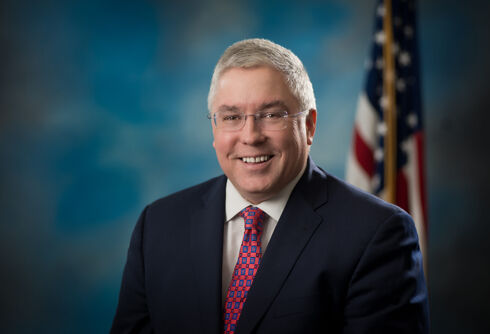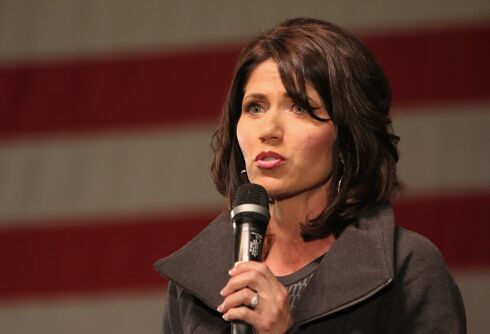Democrats are calling out Republicans for their latest announcement that they will be limiting federal funding for community projects run by nonprofits during the annual appropriations process, alleging that they’re trying to keep funding away from LGBTQ+ community programs.
This past year, House Republicans tried to insert numerous measures targeting LGBTQ+ rights in appropriations bills, which are large pieces of legislation that fund the federal government. Many of the measures they tried to insert would have ended diversity programs at federal agencies, banned employers from covering gender-affirming health care, or banned rainbow flags from being flown on government property.
Related:
Democrats victorious as new federal budget excludes GOP’s anti-LGBTQ+ wish list
Republicans tried to insert over 40 anti-LGBTQ+ provisions — all but one failed.
Other measures attacked federal earmarks for LGBTQ+ community programs, earmarks that weren’t controversial in the past. For example, Republicans tried to end funding for an LGBTQ+ senior housing program in Massachusetts.
Insights for the LGBTQ+ community
Subscribe to our briefing for insights into how politics impacts the LGBTQ+ community and more.
Out Rep. Mark Pocan (D-WI), who sits on the House Appropriations Committee, told LGBTQ Nation earlier this year that the attempts to roll back the earmarks were part of a “very fast slippery slope” of the increasing GOP onslaught on LGBTQ+ rights.
And now Republicans are making it clear that this campaign against LGBTQ+ earmarks isn’t over. Rep. Tom Cole (R-OK) – chair of the House Appropriations Committee – announced this past Thursday that his committee would block nonprofits from getting funding under the Economic Development Initiative, part of the annual housing and transportation appropriations bill, saying that the committee wants to make sure that “projects are consistent with the community development goals of the federal program.”
“I shouldn’t have to have a political problem in my district because I voted for a bill that had your earmarks in it,” he told reporters.
“They’re just taking a very broad brush and denying the nonprofit sector who government relies upon to be providing vital services in communities across the country, and just cutting them off completely,” National Council of Nonprofits communications officer Rick Cohen told The Hill. “It’s really something that in the name of political expediency is going to cause real pain for real people in the communities that these members of Congress represent.”
While his announcement didn’t mention LGBTQ+ projects specifically, House Democrats and LGBTQ+ advocates say that’s likely the reasoning. Conservatives often look for possibly controversial earmarks that make up a fraction of funding in large appropriations bills as reasons to oppose the entire bill.
“They have targeted LGBTQ folks in the appropriations process in an unprecedented way,” said David Stacy of the Human Rights Campaign (HRC). “This is a really poor signal for whether they’re going to pursue the same strategy for the [fiscal year] ’25 bills they did with [fiscal year] ’24.”
Rep. Rosa DeLauro (D-CT), the ranking member of the Appropriations Committee, blamed far-right House Republicans for the change. Far-right extremists in the House held up the appropriations process last year and risked a federal shutdown in an attempt to get their policy priorities into the appropriations bills.
“In order to accommodate the extreme Republican wing, Republicans are trying to root out any help for the LGBTQ+ community,” DeLauro said. “They are willing to hurt their own religious organizations, seniors, and veterans. The result of this change does not just hurt House Democrats.”
She explained that it’s a “seismic shift” in how the committee handles this funding since almost half of Economic Development Initiative funding goes to nonprofit organizations.
“It’d be an awful idea to ban your max going to nonprofits,” Pocan said, explaining that this could be a way to avoid discussions of LGBTQ+ earmarks by just banning all nonprofits.
“But again, this is a slippery slope. If they go down this path, I think it’s not going to work.”
Don't forget to share:















